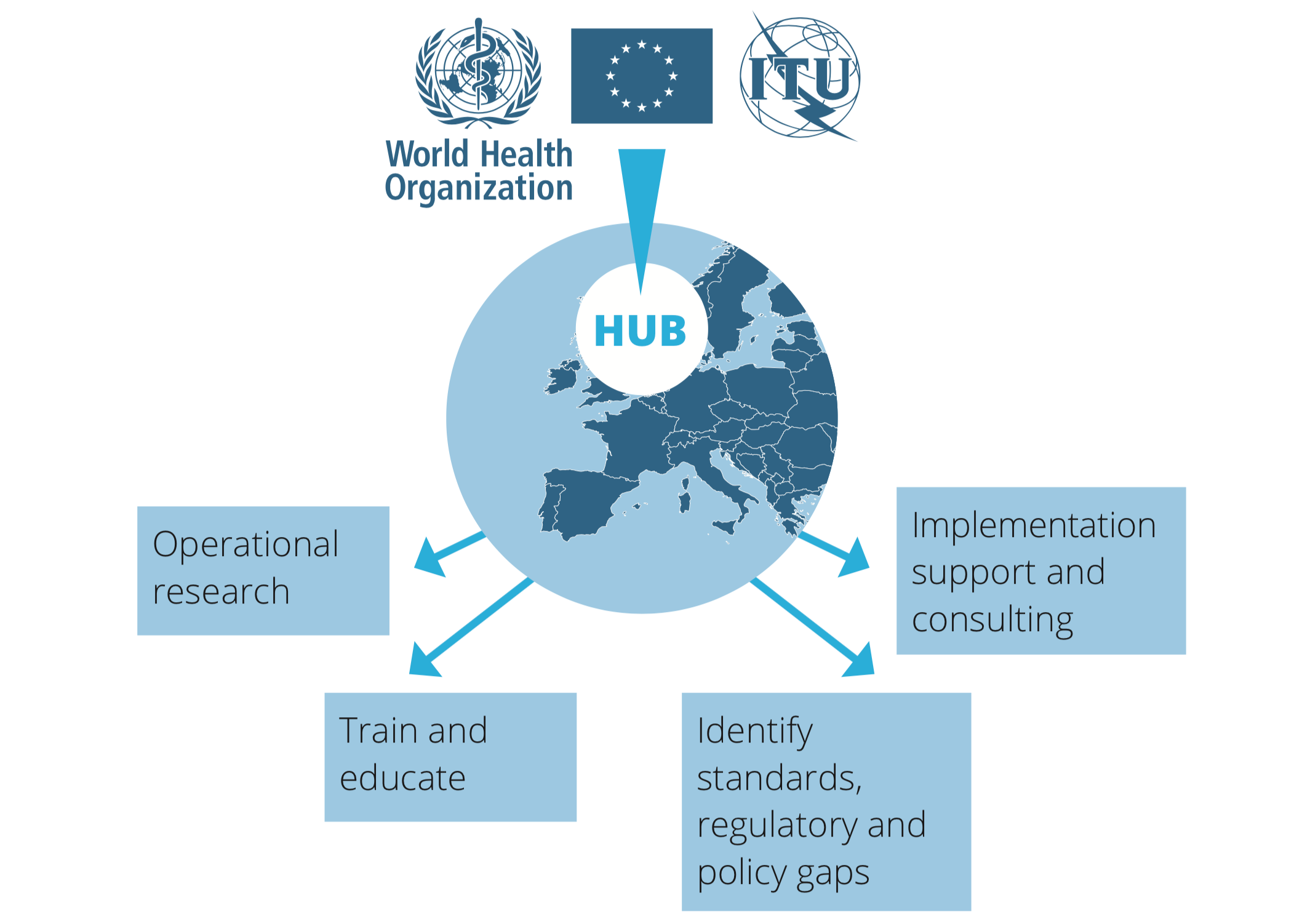The EU mHealth Innovation and Knowledge Hub is a collaboration between WHO and ITU to support countries in integrating the use of mHealth in national healthcare services. Initiated in 2017, the project builds on lessons-learnt from the Be He@lthy, Be Mobile initiative and is funded through the European Union’s Horizon 2020 mechanism.
To meet global demand for guidance on how to deploy mHealth in national health systems, the hub is dedicated to collecting and sharing best practices on mHealth and to providing support on how to implement mHealth initiatives and scale their benefits nationally. This includes research into key drivers and challenges for the adoption of mHealth in the European region, and the identifying standards, regulatory and policy goals relevant to mHealth.
The objectives for the EU mHealth Hub:
• become the focal point for knowledge and expertise on mHealth – identifying trends and gaps in policies, standards, regulations, as
well as best practices and barriers for consistent mHealth strategy and infrastructure.
|
| • facilitate mHealth integration in national and regional level health services, delivering large-scale benefits |
• create evidence on the use of mHealth solutions on health outcomes, quality of life and care efficiency gains in NCD prevention and
management
|
• offer a unique platform to support innovation and scale up of mHealth by convening ecosystem stakeholders across sectors
(entrepreneurs, start-ups, governments, technical officers, etc.). |
| • enable synergies with the existing EU platforms of stakeholders and multi-stakeholder partnerships |
The official Host for the Hub will be announced in 2019.

-
RELEVANT RESOURCES AND LINKS
-
Link to WHO – EU mHealth Hub Project
|
| Link to
EU Horizon 2020 Work Programme 2016-2017, Section – EU mHealth Hub, p.88. |
What is an Innovation and Knowledge Hub? ‘Knowledge’ Hubs’ are entities which help countries learn from the practical experiences of their peers. They look at what practices to adopt, pitfalls to avoid and which common frameworks can best support new programs. They also serve as a base for researchers, project coordinators, experts and technical support teams to develop knowledge, capability and technical expertise in a particular field.
|